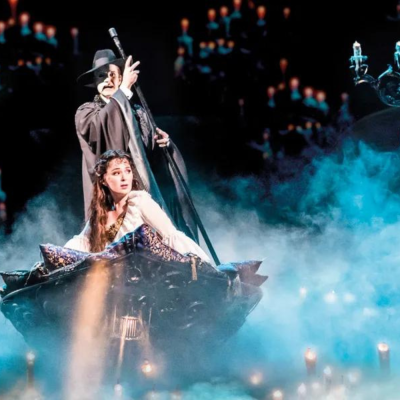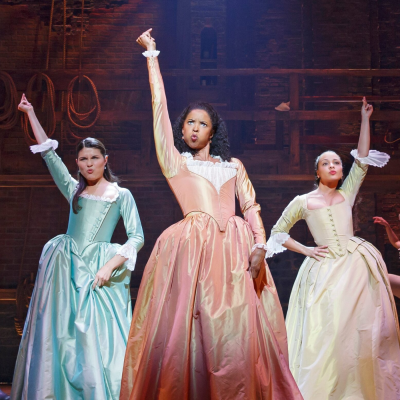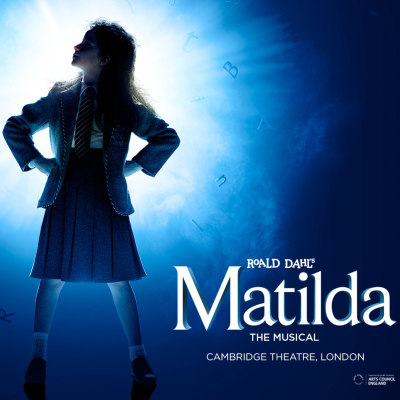The West End, London’s renowned theatre district, is both a hub for world-class entertainment and an unexpected yet effective resource for language learners! Watching West End musicals offers a unique and engaging way to improve English skills, blending the joy of live theatre with educational benefits.
These productions, celebrated for their captivating stories, memorable music, and diverse characters, provide an immersive experience that can significantly enhance language proficiency. If you want to improve your English while enjoying this magical place, then don’t forget to book tickets for a West End musical!
Top West End Musicals in London for English Language Learners
1. Les Misérables: A Masterclass in Storytelling and Vocabulary
Les Misérables, also known as Les Mis, is a famous musical based on Victor Hugo’s epic book. The powerful themes of love, justice, and redemption portrayed through advanced language and moving lyrics will not only captivate your heart but also enrich your English skills. It’s an unforgettable experience that combines the magic of theatre with the beauty of language, and this is exactly what makes Les Misérables a great option for anyone learning English. Here’s why:
Why is this Musical Great for Learning English?
- Each character in “Les Misérables” has a unique voice and manner of speaking, ranging from the stoic Jean Valjean to the fiery Thenardier. This diversity helps learners understand different tones and styles of English, from formal and reflective to colloquial and sarcastic.
- The musical’s exploration of deep emotions—such as love, despair, and redemption—can help learners understand how to communicate different feelings through language.
- The lyrics often include more advanced language choices such as metaphors, similes, and historical references. While this can be challenging, it also provides a valuable opportunity for learners to expand their vocabulary and comprehension skills.

2. The Phantom of the Opera: Enhancing Listening Skills Through Music
One of Andrew Lloyd Webber’s greatest works, The Phantom of the Opera, takes audiences to the impressive Paris Opera House. Here, a masked musical talent haunts the stage and the play itself delves into themes of love, obsession, and fear. The music in the show mixes operatic songs, haunting tunes, and intense choruses.
For those learning English, The Phantom of the Opera gives a special way to improve their skills, here’s why:
Why is this Musical Great for Learning English?
- The vocabulary is varied and includes Gothic and historical elements, such as terms related to opera, architecture, and romance. This provides an opportunity to learn more sophisticated and complex language.
- The Phantom’s poetic and old-school language contrasts with Christine’s more modern and emotional expressions, helping learners understand different speech styles and tones.
- The musical delves into themes of love, obsession, and fear. Understanding how these emotions are communicated through language can help learners grasp more nuanced expressions and phrases.

3. Hamilton: Learning American History with a Modern Twist
Lin-Manuel Miranda’s musical, Hamilton, has become very popular around the world. It mixes hip-hop, R&B, and traditional Broadway styles in a new, modern way, and the exciting music and clever language choices tell the story of Alexander Hamilton, one of America’s founding fathers.
At first, the quick lyrics and slang might be hard to understand. But they give you a great chance to learn new vocabulary and improve your modern English, while the show’s fresh take on history makes it interesting for learners from all backgrounds. In addition, Hamilton talks about themes like ambition, legacy, and the American dream. This gives many chances for conversation and thought and helps you understand more about the English language.
Why is this Musical Great for Learning English?
- “Hamilton” uses modern, colloquial language and slang, which helps learners understand contemporary English and everyday expressions. The use of current language makes it accessible and relevant for today’s audiences.
- The fast-paced delivery of lyrics in “Hamilton” challenges listeners to keep up with the language. This can improve listening comprehension and the ability to process information quickly.
- “Hamilton” explores themes such as ambition, revolution, and legacy through personal stories. Understanding how these themes are conveyed through language can deepen comprehension of difficult ideas and emotions.

4. Wicked: Exploring Themes of Friendship and Morality
Journey to the Land of Oz, before Dorothy gets there, in Wicked. This musical tells the story of the Witches of Oz, featuring memorable songs and an interesting, engaging story. Wicked looks at friendship, the fight between good and evil, and how we see things differently.
The language used in the musical is beginner-friendly and ripe with feelings and emotions, giving you the vocabulary to deal with relationships, right and wrong, and how people behave. Wicked’s fun songs and sweet stories are a great way to practice your English and think about important life lessons.
Why is this Musical Great for Learning English?
- The dialogue in “Wicked” is clear and expressive, making it accessible for English learners. The characters speak in a way that is easy to follow, which helps with understanding conversational English.
- Songs like “Defying Gravity,” “Popular,” and “For Good” are catchy and feature clear lyrics. These songs deal with themes of self-empowerment, friendship, and personal growth, making them relatable and memorable.
- The fantastical setting of Oz introduces learners to imaginative and descriptive language. The creative world-building in “Wicked” provides context for understanding unique vocabulary and expressions.
5. Matilda The Musical: Expanding Vocabulary for Young Learners
Matilda The Musical is based on Roald Dahl’s famous children’s book, telling a heartwarming story that many people, not just children, love around the world. The musical follows Matilda, a young girl who loves books, is very smart, and has magical powers. This musical is a great option for young learners and anyone new to English, and the themes of education, reading, and standing up for what you believe are great topics for practising in language and culture.
Why is this Musical Great for Learning English?
- The dialogue in “Matilda” is easy to understand, reflecting the perspectives of children and adults alike. This clarity makes it easier for English learners to follow along and grasp everyday language.
- Songs such as “Naughty,” “When I Grow Up,” and “Revolting Children” are catchy and feature clear, repetitive lyrics. These songs deal with themes of empowerment, childhood dreams, and rebellion, making them both memorable and instructive.
- The musical covers a wide range of emotions, from Matilda’s resilience and bravery to Miss Trunchbull’s cruelty. Understanding how these emotions are conveyed through language can improve learners’ ability to express feelings and sentiments in English.
- Although the story is universal, it is set in a distinctly British context with British humour and cultural references. This provides insight into British culture and helps learners understand regional languages and expressions.

6. The Lion King: A Majestic Tale of Family and Identity
Embark on a journey to the African savanna in The Lion King musical. Inspired by the beloved Disney animated film, this theatrical masterpiece brings to life the story of Simba, a young lion prince destined to rule the Pride Lands. Through captivating music and mesmerizing performances, The Lion King explores themes of family, identity, and the circle of life. The rich language used in the musical allows audiences to immerse themselves in the beauty of the African landscape while learning valuable vocabulary related to nature and relationships.
Why is this Musical Great for Learning English?
- The dialogue in “The Lion King” is straightforward and articulate, which makes it easier for non-native speakers to understand. The story is based on a classic coming-of-age tale with universal themes of loss, redemption, and responsibility, making the plot easy to follow even for those with limited English proficiency.
- Each character has a distinct way of speaking, which helps in understanding different English accents and expressions. For instance, Mufasa’s regal and commanding voice contrasts with Timon and Pumbaa’s more casual and humorous speech, providing a range of language styles
- The songs in “The Lion King,” such as “Circle of Life,” “Hakuna Matata,” and “Can You Feel the Love Tonight,” are catchy and repetitive. This repetition reinforces vocabulary and phrases, making it easier to remember and use new words.
- The vibrant costumes, sets, and stage effects in “The Lion King” provide visual context that supports language comprehension. The rich visual experience helps learners connect words and phrases with their meanings.

Practical Tips to Learn English From West End Musicals
- If you are watching from home, watch the musical with subtitles: This helps you with recognising and learning new vocabulary.
- Analyse lyrics: Look up unfamiliar words and phrases, and explore their meanings in the context of the song.
- Discussion and reflection: Discussing the musical’s themes, characters, and language with others can provide opportunities to use new vocabulary in conversation.
- Practice pronunciation: Sing along with the songs to practice pronunciation and intonation.

What makes West End musicals an effective tool for improving English?
West End musicals, located in the centre of London’s famous theatre district, provide a great way to learn a language. The mix of music, dialogue, and visual stories helps improve vocabulary, pronunciation, and listening skills. This makes West End musicals an exciting and helpful resource.
Can attending musicals really improve pronunciation and listening skills?
Yes, the clear speech and different accents in famous musicals in the West End give great practice for listening. Hearing different ways people speak and the repeated songs and lines helps you get better at your listening skills and improves your pronunciation.
Are there musicals suitable for English language beginners?
Many family-friendly shows are great for new English speakers. This includes adaptations of Roald Dahl’s stories, such as Matilda, and classic tales like A Christmas Carol. They use simple words and familiar plots. This makes musical theatre easier to understand and fun for everyone.
How often should I watch musicals to see improvement in my English skills?
Consistency is very important. Whether you enjoy classic shows at Theatre Royal Drury Lane or prefer modern ones like the Simon & Garfunkel Story, going to West End shows regularly can help boost your English skills. If you only have time to see 1 show on your trip, most musicals have videos on youtube that you can watch to practice at home!
Best West End Musicals in London to Improve Your English: Final Thoughts
Musicals such as “The Lion King,” “Les Misérables,” “Wicked,” and “Hamilton” present opportunities to practice listening, expand vocabulary, and understand various language styles and cultural contexts. The clear dialogue, expressive lyrics, and dynamic performances in these shows make language learning both enjoyable and practical.
In addition to improving comprehension and pronunciation, the experience of watching live theatre helps learners grasp emotional nuances and contextual meanings that are often lost in traditional study methods. By journeying into the vibrant and magical world of London’s West End musicals, learners enhance their English skills while gaining a deeper appreciation for the art of storytelling and performance. This fusion of entertainment and education makes West End musicals a powerful and enjoyable tool for anyone looking to advance their language abilities!





